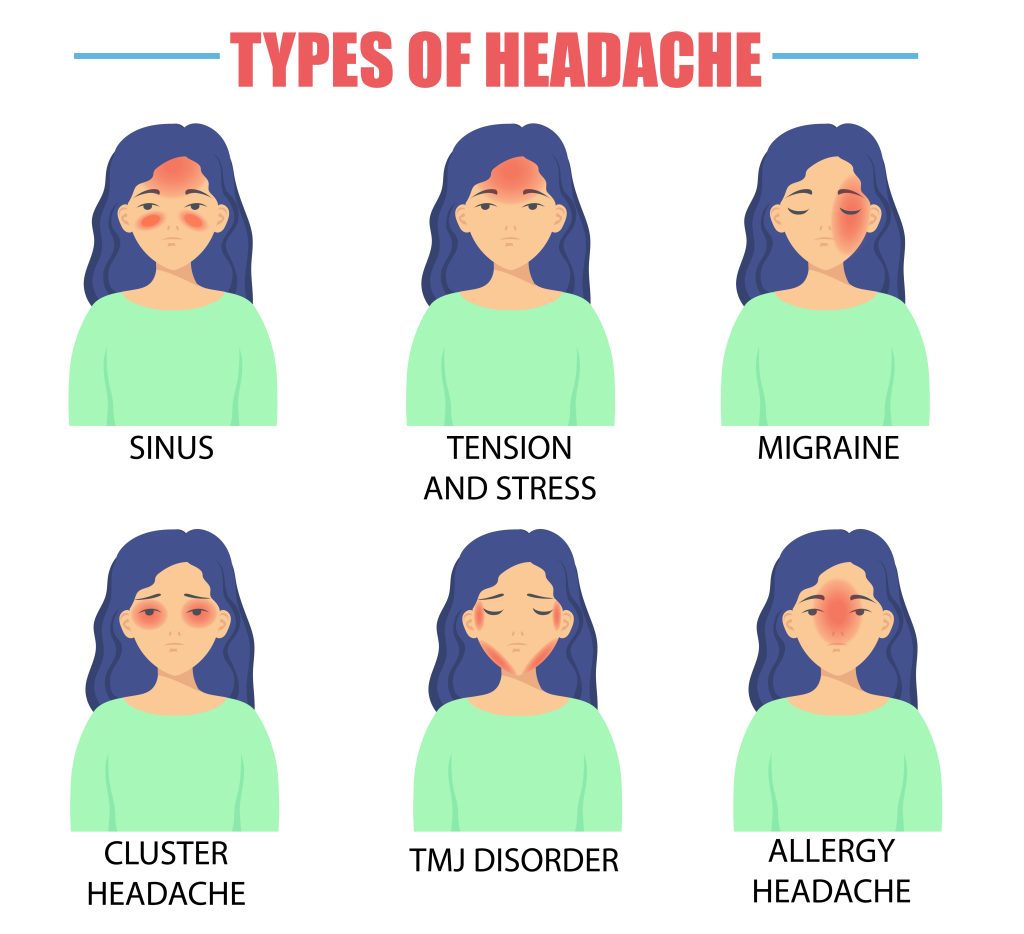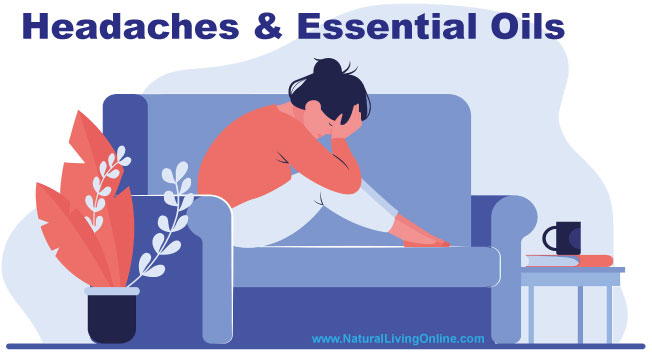There are many different types of headache, and migraine is just one of them. Tension headaches, for example, are the most common type of headache, and they are usually caused by muscle tension or stress. Cluster headaches are another type of headache that tend to occur in groups or cycles. These headaches are very severe but short-lived, and they are thought to be caused by changes in the trigeminal nerve.
Migraine is a type of headache that can cause severe pain, nausea, and vomiting. It is often preceded by visual disturbances called aura. Migraine is thought to be caused by changes in the brainstem and its interactions with the trigeminal nerve, a major pain pathway. Changes in brain chemicals, including serotonin, may also play a role.

What triggers migraine?
There are many different things that can trigger migraine, and these vary from person to person. Common triggers include:
– Hormonal changes in women (during menstruation, pregnancy, or menopause)
– Stress
– Lack of sleep
– Bright lights or glare
– Loud noise
– Strong smells
– Weather changes
– Certain foods and drinks (aged cheese, chocolate, red wine, caffeine, or aspartame)
Migraine headaches can be extremely debilitating, and they can significantly impact a person’s quality of life. According to the World Health Organization, migraine is the sixth most disabling illness in the world.
There are many different treatment options for migraine, and people should work with their healthcare providers to find the best option for them. Some people may only need over-the-counter pain relievers, while others may require prescription medication.
Essential oils are a natural remedy that can be used to help relieve migraine headaches. Lavender oil, peppermint oil, and eucalyptus oil are all thought to be helpful for migraines.
How essential oils work?
Essential oils are concentrated extracts from plants. They are typically made by distilling the leaves, flowers, or other parts of the plant. Essential oils contain the plant’s scent as well as its active ingredients.
The chemical composition of each essential oil is unique, and this determines its smell, color, and overall therapeutic properties. When essential oils are used on the skin, they are absorbed into the bloodstream and can interact with the body in various ways.
Lavender Essential Oil
Lavender oil is thought to be a calming agent that can help to reduce stress and tension, both of which can trigger migraines. People with migraine were relieved from acute pain after inhaling lavender essential oil for 15 minutes, according to a study conducted in 2013. A Placebo-Controlled Clinical Trial study suggests that inhalation of lavender essential oil may be an effective and safe treatment modality in acute management of migraine headaches.
Peppermint Essential Oil
Peppermint oil is thought to have analgesic and anti-inflammatory properties that can help to relieve pain. Peppermint essential oil targets headache pathophysiology in multiple ways. 44% of peppermint is menthol which is an active constituent in peppermint essential oil, which may lessens the severity of migraine pain. Peppermint essential oil is also effective for other symptoms caused by headache and migraine such as nausea, stress, congestion, runny nose, muscle pain.
Research suggests massage with peppermint essential oil diluted with carrier oil reduces headache within 24 hours. A study published in 2012 found that peppermint oil was effective in reducing migraine pain. Another study published in 2014 found that a blend of lavender and peppermint oils was effective in reducing both the frequency and intensity of migraines.
Eucalyptus Essential Oil
Eucalyptus oil is thought to have cooling and refreshing properties that can help to soothe a headache. According to a review published in Asian Pacific Journal of Tropical Biomedicine, eucalyptus oil has been used to regulate and activate the nervous system for nerve pain and headache.
How to use essential oils?
To use essential oils for migraines, people can either inhale them directly from the bottle or add them to a diffuser. They can also apply them topically to the temples or forehead. It is important to dilute essential oils before applying them to the skin.
Essential oils are a safe and effective treatment option for many people with migraines. However, it is important to remember that they should not be used in place of conventional medical care. If you are experiencing migraine headaches, talk to your healthcare provider about the best treatment options for you. Pregnant women, children under the age of 10, and people with chronic health conditions should not use essential oils without talking to their healthcare provider first.
Other than drugs and natural treatments there are some lifestyle changes that can help to reduce the frequency and severity of migraines, including:
– Getting enough sleep
– Reducing stress
– Eating a healthy diet
– Exercising regularly
– Avoiding triggers, such as bright lights, strong smells, or certain foods and drinks
This website does not provide medical advice.
All information provided on this website, and on associated social media networks, including but not limited to texts, images, and numbers are for general information purpose only. It is not intended as medical advice and it does not include all possible precautions, side effects, or interactions that may occur. Neither NaturalLivingOnline.com nor its author/founder take responsibility for how you use this information. Statements contained on NaturalLivingOnline.com have not been evaluated by the FDA. You should conduct thorough research via multiple sources and consult your physician or qualified doctor before using any essential oil or herbal remedy. Information on NaturalLivingOnline.com must not be relied upon for medical, legal, financial or other decisions.









